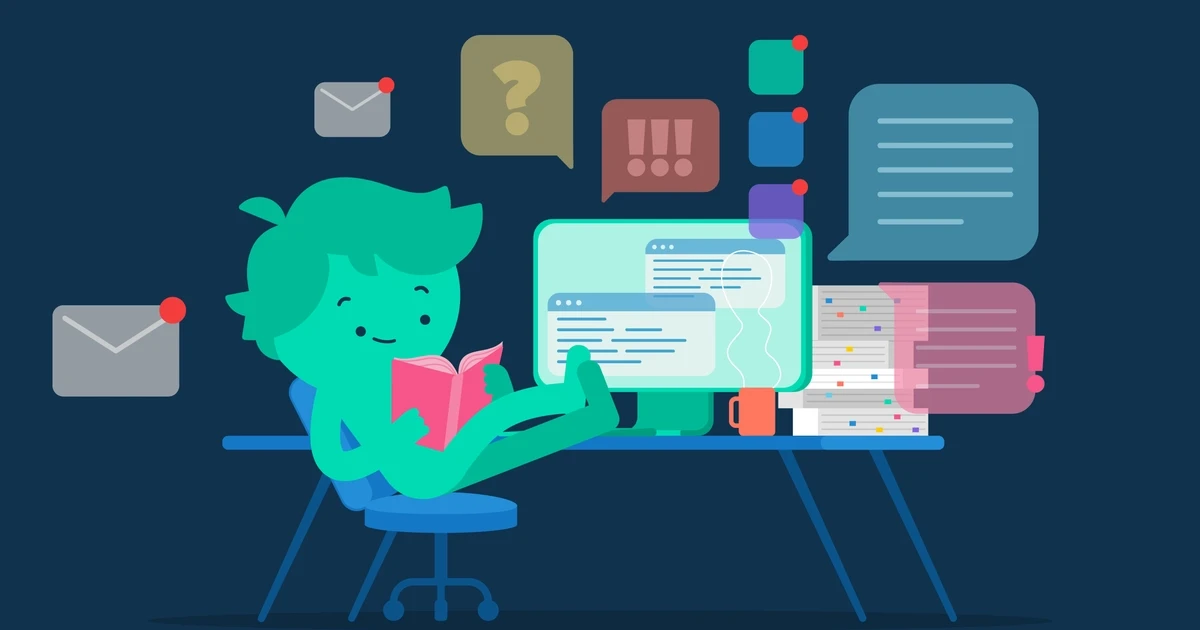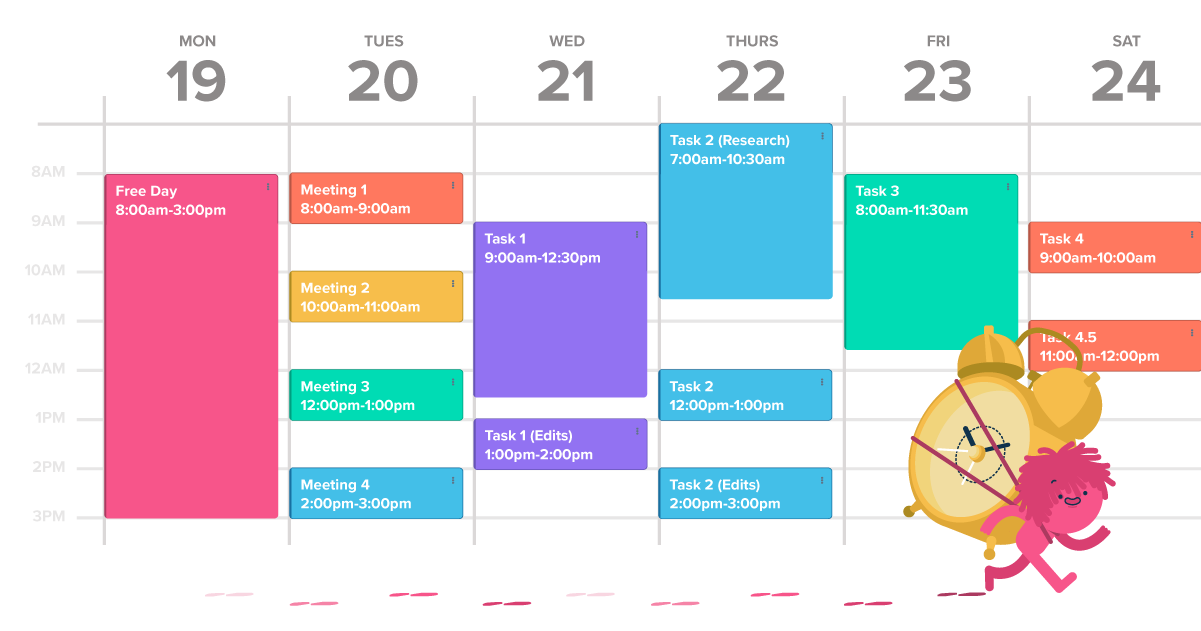What Is the Average Reading Speed These Days?
Have you ever wondered about your reading speed? Depending on how much you read, your reading speed may be higher than average, but as far as any self-respecting bookworm or university student is concerned, one can always increase their reading speed. On average, an adult reads between 220 and 350 words per minute – think in terms of Microsoft Word documents, that’s about one page per minute. The younger someone is, the slower they read, with primary school children averaging 150–200 words per minute.
When we speak of average reading speeds, the numbers account for the statistical mean number – there are faster and slower readers alike. Many factors affect your reading speed, including the amount of practice one gets, the breadth of one’s vocabulary, and the reader’s motivation (don’t we all know the pain of slogging through a mind-numbingly boring text), and reading techniques.
Is it Possible to Increase Reading Speed?
Wouldn’t it be nice to be able to read two pages per minute? Yes, of course, it would, but mind you, reading two pages of a textbook takes longer than reading two pages of your favourite childhood classic. Nevertheless, the overall reading time can be decreased by practicing your reading skills.
Apart from the obvious time efficiency that comes with the increased speed of reading, there are some other benefits to being able to read faster:
- Higher brain efficiency. Reading fast actually helps you use higher brain capacity. It fosters quicker pattern-spotting, helps you form logical conclusions, and boosts your focus. As a result, you’ll start thinking faster, which is particularly useful in high-speed work environments.
- Greater productivity. This is a bit of a self-solving problem – the faster you read, the more you’ll get done, and the more you achieve, the more you’re motivated to continue a good winning streak.
- Improved memory. How do you become an expert in thermonuclear astrophysics in one night? I wouldn’t be surprised if Tony Stark mentioned speed reading in his answer, but even if we cannot ask him anymore, we are sure that’s a part of it. Add some mnemotechnics exercises, and you’ll be the master of any subject.
- Your eyes will thank you. Reading faster also means less eye strain because you spend less time squinting at your screen or poring over those super stingy books that wanted to save paper by filling each page with font size 6.
So, yes, it’s very possible and beneficial to work on your reading speed.
Learning Speed Reading – At Home or in a Course
Just like with everything else these days, speed reading is a profitable skill, especially if you know how to impart your knowledge to others. However, you don’t have to severely maim your bank account (which, in student days, is incapacitated as it is) to increase your reading speed. There are tips and tricks you can learn and implement in your daily reading practice at home.
Techniques of Speed Reading That Really Work
Firstly, what is speed reading?
Not every piece of advice you find online is solid and feasible – for instance, timing yourself is more detrimental to your reading progress as you’ll be hyper-aware of the timer ticking somewhere, which, you guessed it, is a little bit distracting. Instead, try these tips to boost your reading speed:
- Read more. The reality of speed reading is that you cannot learn it in one afternoon. The one true way to increase your average reading speed is to practise by reading as much as you can. If you’re a self-proclaimed non-reader, I’ll be frank with you – you are wrong. There is a book for everyone, and once you’ve found one, you’ll find hundreds. Only through regular reading can you truly improve your reading skills.
- Chunk words together. As you read more, it’ll become evident that certain words always go together: idiomatic expressions, collocations, and simple subject-verb-object structures. Your brain will be primed to recognise linguistic patterns, and you’ll be able to process several words at the same time.
- Do not re-read words. Here’s a tricky habit we all suffer from – backtracking. Pay attention to someone reading next to you, and you’ll see their eyes skittering back and forth. Once aware of this, you should try to drop the habit and force yourself to keep moving forwards.
- Use your peripheral vision. You’re aware that your eyes catch much more than the item you’re focused on. When reading, this allows you to see, encompass, and process multiple words. Your peripheral vision will also cover those words you would have otherwise gone back to.
- Read with comprehension. Don’t fall into the trap of blind reading – flitting through a text with glazed-over eyes, secretly wondering what’s for dinner and whether you should just quickly check your social media. Focus on what’s written. Once you’ve invested in the context of the story world/scientific paper, you’ll process and retain the content much faster.
If you’re a bit of a kinaesthetic reader and learner, you can use a pencil or even your finger to trace the text on the page – sweep the tip of the pen along the text and your eyes will subconsciously follow it, thus reading faster. Of course, be reasonable about the speed at which you’re moving your preferred pointer; there’s only so much your brain can do, especially at the beginning.

How About a Speed-Reading Course?
Since I did mention speed-reading courses, it would be unfair to completely ignore them in this treatise. There is no denying that a well-structured and developed course will help you on your quest to read faster. If you’re at the very outset of increasing your reading load and wish to read faster, having some guidance can be incredibly beneficial to get you started.
Good speed-reading courses will usually have you read through a multitude of different documents too. From fictional texts to journal articles to legal and technical write-ups, you’ll be dealing with various materials, which is likely to boost your comprehension skills and allow you to contend with a wider variety of texts in life. Gone are the days of endless confusion over leases and shady work contracts – reading faster means reading better, and this is an opportunity you should not pass up.
If you wish to pursue these perks in a speed-reading course, here are a few online options:
- MindValley’s Superreading Course. This course is developed by Jim Kwik (pun absolutely intended), who coaches you through his super reading concept for 21 days online. Every day, you’ll spend 20ish minutes with Jim, who will guide you through the most useful techniques and tools of speed reading before sending you off to work with various multimedia assignments and materials. Kwik guarantees you’ll double your reading speed by the end of the course, and the generally positive reviews confirm there is an improvement.
- Speed-reading classes on Skillshare. If you’re not willing to commit to paying for a high-profile course like the one above, you can dip into one of the options offered by Skillshare. The great thing about this wide selection is that most of them double up as tutorials on effective study techniques. You’ll find valuable tips on conducting research, writing papers, and memorising lots of information.
- Spreeder course. Meet yourself in the middle in terms of price and try out the Spreeder course. The course is available across all platforms, and you can access it any time and anywhere. Video materials will help you increase your reading comprehension, process more information, and read at higher rates while retaining the key aspects of any text.
The Best Apps for Speed Reading
In addition to structured courses laid out for you, you can also work on your reading speed using certain apps. And, let’s face it, there’s an app for everything nowadays 😉.
In addition to the Spreeder app version, some apps have got our attention:
- ReadMe! This little multi-purpose buddy allows you to store all your e-books – no need for dreary conversions – and access them at all times. As you read, the app adds a layer of colour to the line you should be focusing on, drawing your eyes to the illuminated bits of text and guiding your brain to read faster. Neat, huh? 😊
- Readsy! No need for downloads with this one – all you need to do is go on the website and load any reading material you have. Readsy supports several text formats, and you can even read the news. You can customise how many words per minute you want to read, and the app will highlight the lines and hide the rest of the text. You can also select to see the entire text as you read.
- Reading Trainer. The app comes in Android and iOS versions and trains you to read many texts quickly and with understanding. The app also has built-in reading exercises, which will help you increase the scope of your peripheral vision and boost your mental capacities.
- Reedy Reader. This app uses the intelligent tool called Rapid Serial Visual Presentation. Similar to ReadMe and Readsy, it highlights the words you’re meant to read, this time by magnifying word chunks for you to focus on. The app allows a series of formats and has a wide variety of content on its own, increasing your ability to read different texts.
- ReadLax App. Lastly, and slightly differently, ReadLax is a brain-boosting app that contains a series of games and exercises that boost all your mental faculties. The app is tailored to a variety of learning styles and is beneficial in helping you focus and remember information in addition to quick reading and processing.
PS While all these apps are great and do work, make sure to read off-screen too to reduce eye strain and learn to focus on texts that do not have automatic highlighting features or integrated progress trackers.

Zooming Off Into Your Speed-Reading Practice
Before you disappear to work on your speed-reading skills, there are a few more things to remember:
Speed reading is an excellent soft skill (which looks great on your CV), but it doesn’t come overnight. Just like any transferrable skill, you should plan and take time to apply yourself to learning it and keeping your sharpness up.
That said, the best and most reliable advice is to keep reading as much as possible. Replace some of your scrolling time with reading, join relevant communities on Reddit and Goodreads to find good suggestions, or seek out your local book club if you have trouble with finding your reading motivation.
Speedy read-y, off you go!
On average, people read around 40 pages per hour. However, speed readers can ramp up these numbers to 50–60 pages per hour.
To improve your reading speed, read as much as you can, use your peripheral vision, and don’t go back to re-read the words you think you’ve missed (your brain might be tricking you). Trace your text with a pencil to guide your eyes over the page.
Speed reading is an effective technique that can help you save time, increase your concentration, and turn you into a quicker thinker. The good thing about various speed reading courses and apps is that they train your brain at comprehension and logical thinking too.
Anywhere between 250 and 300 words per minute is a good reading pace. However, with some speed-reading exercises, you can double these numbers easily.
How we ensure our content is accurate and trustworthy?
At StudySmarter, we have created a learning platform that serves millions of students. Meet the people who work hard to deliver fact based content as well as making sure it is verified.

Gabriel Freitas is an AI Engineer with a solid experience in software development, machine learning algorithms, and generative AI, including large language models’ (LLMs) applications. Graduated in Electrical Engineering at the University of São Paulo, he is currently pursuing an MSc in Computer Engineering at the University of Campinas, specializing in machine learning topics. Gabriel has a strong background in software engineering and has worked on projects involving computer vision, embedded AI, and LLM applications.
Get to know Gabriel




